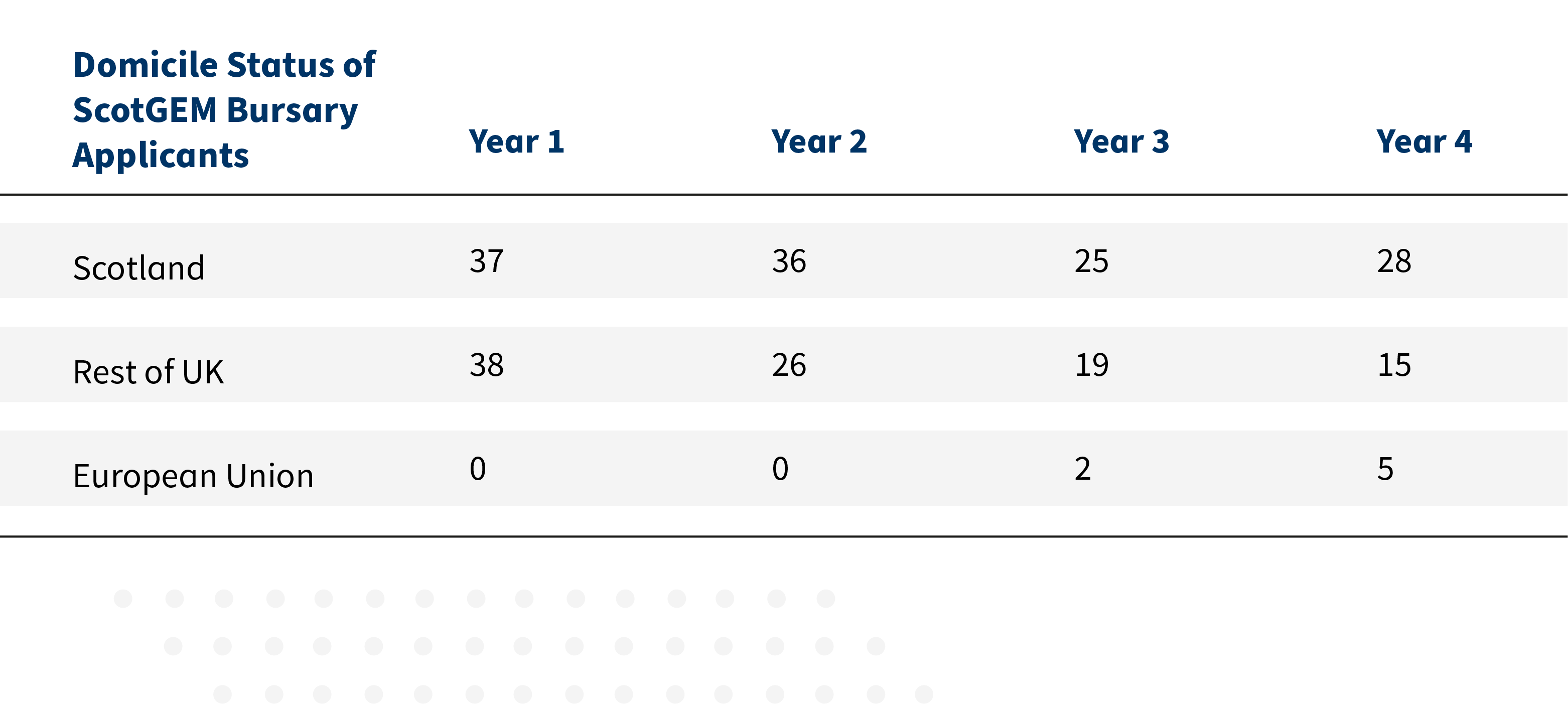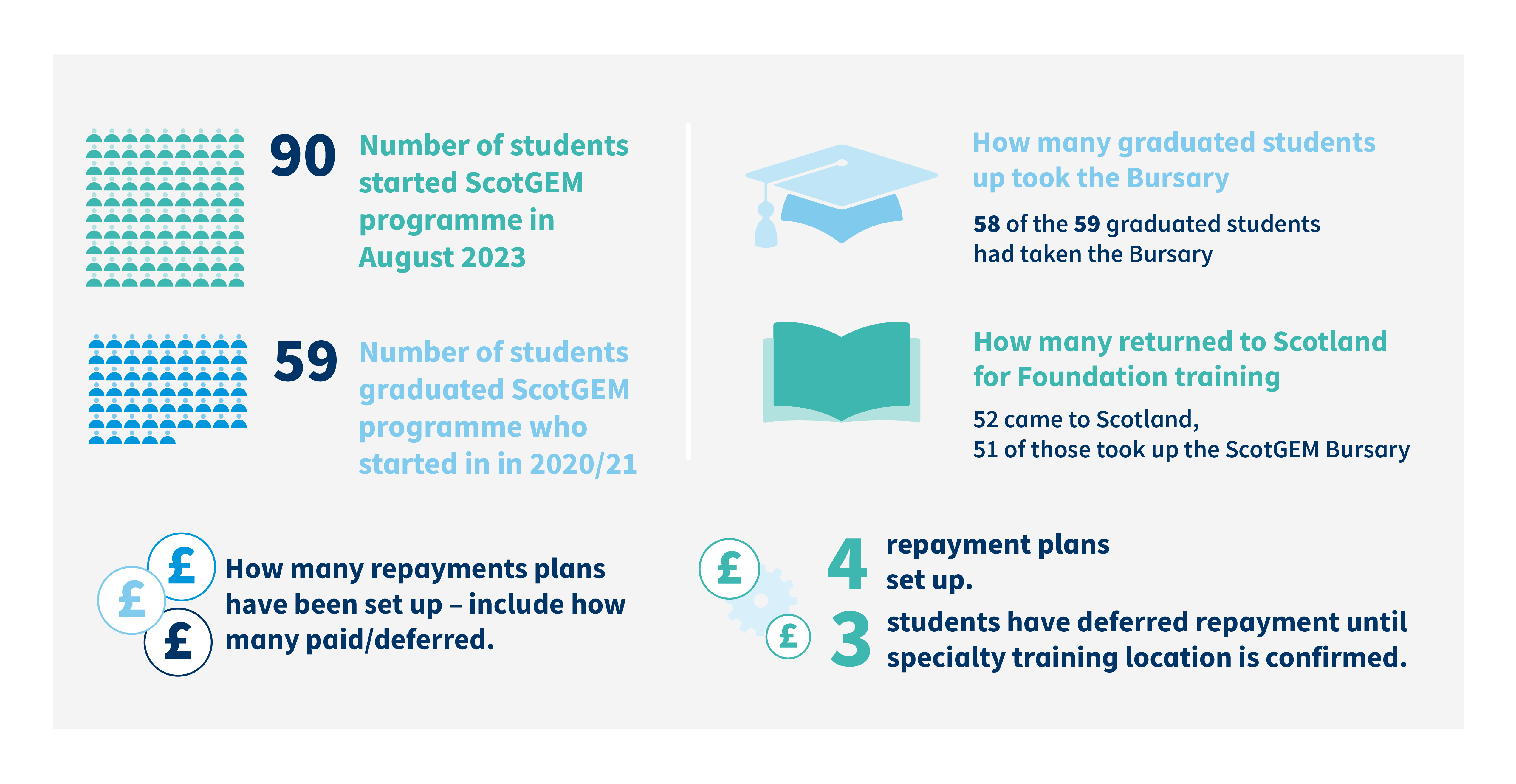ScotGEM Bursary Scheme
09


An optional ‘return of service’ Bursary of £4,000 per year for the duration of this 4-year programme has been available to all ScotGEM students since Autumn 2018. Each year of Bursary claimed requires the recipient to provide one year of service to NHS Scotland. The Bursary needs to be repaid if recipients default on this obligation to work and train in Scotland, based on how many of the required (up to four) years of service have not been provided. Whilst the return of service contract is between the student and the Scottish Government, the Bursary scheme is managed by NHS Education for Scotland.

Uptake of the Bursary



Student Outcomes relating to the ScotGEM Bursary Scheme in 2023


ScotGEM Bursary Process Improvements
- Tracking uptake of the ScotGEM Bursary is a manual process which requires input from several data sources. As students graduate from the programme, the total number of Bursary recipients who need to be tracked has risen steadily in recent years.
- During the 2022-23 payment cycle, NES received a high volume of student queries, with some complaints received around delays in payments. Therefore a full process review was undertaken internally with NES Finance, who administer Bursary payments, in collaboration with teams at the University of St Andrews and University of Dundee.
- The review identified that Year 2, 3 and 4 students start the Academic Year up to a month earlier than Year 1 students. In recognition of this, a separate application form for first time applicants was created and another for those who had received ScotGEM Bursary in previous years, including any students being required to repeat a year of study. This allowed for different application closing dates and a more efficient process. As a result, established Bursary applicants received their payments shortly after matriculation and before Year 1 students matriculated and began to apply.
- A further advantage was that the administration process was spread over several months which was helpful for the NES teams involved.
- All student information sheets were updated by NES, and the revised guidance was circulated to students by both Universities. Implementing these changes significantly reduced the volume of queries received from students during 2023-24 and NES is pleased to report that no complaints were received regarding payment dates.

